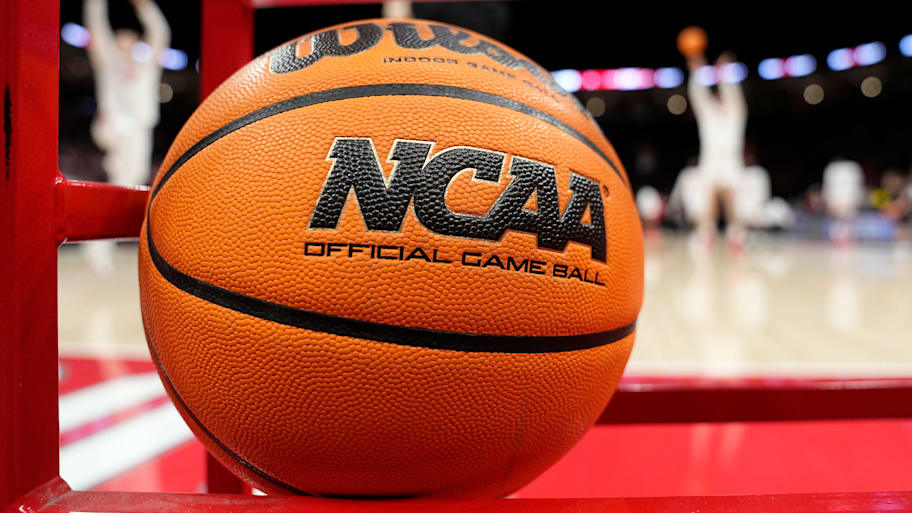The NCAA on Wednesday announced permanent bans on three men’s basketball players, two who competed at Fresno State and one from San Jose State, for point shaving and impermissible betting on games during the 2024–25 season. They are the first publicized NCAA infractions decisions in an expanding probe of point shaving and game fixing in both pro and college basketball.
Former Fresno State players Mykell Robinson and Jalen Weaver and former San Jose State player Steven Vasquez—who transferred there from Fresno—were permanently banned by the NCAA.
“The NCAA enforcement staff began the investigation after notifications from Fresno State and a sports betting integrity monitor about suspicious prop bets placed on Robinson,” the NCAA said in a release announcing the infractions rulings. “The NCAA enforcement staff uncovered evidence that the three student-athletes shared information about individual betting lines for the purpose of manipulating outcomes to win prop bets.”
Robinson played his last game of the 2024–25 season at Fresno State on Jan. 11, missing the last two months of the season. Weaver last played on Feb. 18. Vasquez, who had a limited role at San Jose State, last played on Feb. 11. Both teams finished the season with losing records. The schools have not been charged with wrongdoing in those cases.
It’s not known whether the infractions cases involving these three players intersect with other current inquiries by both federal investigators and the NCAA. As Sports Illustrated reported on Aug. 14, federal investigators from the U.S. Attorney’s Office in the Eastern District of Pennsylvania have advanced their probe of point shaving and game fixing in college basketball, conducting interviews with players suspected of manipulating their performances for the benefit of gamblers who wagered on their games. The investigation covers multiple regions and teams, sources say, with a current focus on “Southern schools.”
That probe is believed to be heading toward the indictment stage.
“There are going to be charges,” a source with knowledge of the investigation says. “It’s going to be national in scope. It’s going to involve multiple players and programs.”
SI reported in February that authorities are looking into links between the ring that has been charged in the game-fixing case of former NBA player Jontay Porter and wagering on at least nine college games across the last two seasons. Gambling monitoring services flagged unusual wagers on games involving at least five college teams—and investigators have been prepared for that number to increase. The NCAA has opened infractions cases or eligibility inquiries involving players at New Orleans, Eastern Michigan, Mississippi Valley State and Temple.
It’s not clear whether the players from those institutions—or from Fresno State and San Jose State—are under criminal investigation. Inquiries initiated by alerts from gambling compliance agencies may not all lead to findings of wrongdoing, sources say.
To date, prosecutors have charged five people in the Porter scheme. Four of them—Porter, Timothy McCormack, Mahmud Mollah and Long Phi “Bruce” Pham—have pleaded guilty to conspiracy to commit wire fraud. Their plea agreements remain under seal, but their sentencing dates have all been pushed back, which is common in cases where defendants have agreed to testify.
A fifth defendant, Ammar Awawdeh, has been indicted for conspiracy to commit wire fraud and conspiracy to influence sporting contests by bribery. Awawdeh has been negotiating a plea agreement since at least March, according to joint filings between his attorney and U.S. attorneys in the Eastern District of New York.
A sixth person, Shane Hennen, was arrested in January. He has not been officially charged, but the Justice Department has said Hennen will be charged with wire fraud conspiracy and money laundering. At the time of Hennen’s arrest, acting EDNY U.S. Attorney Carolyn Pokorny wrote a letter to a U.S. Attorney in Nevada vouching for “substantial evidence” that Hennen was involved in “illicit financial transactions and fraudulent sports wagers totaling millions of dollars,” resulting “in potentially millions of dollars’ worth of illicit profits and money-laundering transactions.”
Pokorny also described “a network of proxies and straw bettors located across the country.” The six men who have been named publicly are all from New York or Pennsylvania.
The cases involving the Fresno State and San Jose State players stemmed from daily fantasy wagers made this past season.
In the case of Robinson, a sports integrity monitoring service notified the school on Jan. 17 that there were suspicious prop bets on the player’s performance from the Bulldogs’ Jan. 7 game against Colorado State. Robinson hit the “under” on points, rebounds, assists and three-pointers made in the game, triggering thousands of dollars in winnings for himself and Vasquez.
That was one of five instances in which Robinson was found to have placed impermissible wagers or provided information to others to make wagers. From the infractions report: “Robinson also placed 13 daily fantasy sports over-line and under-line prop bets, totaling $454, on parlays that included his own performance. Robinson did not win on all of the bets but did collect $618 on one occasion.”
Vasquez’s sanctions were tied to his wagers on the Jan. 7 Colorado State–Fresno State game.
Weaver acknowledged to NCAA investigators in February that he placed prop bets on himself, Robinson and a third player at another institution for games played Dec. 31, 2024. Weaver placed a $50 bet on the “over” on all three, and won a parlay for $614.
“Notably, Robinson placed multiple bets on Weaver—who was Robinson’s teammate at Fresno State—including two bets placed before a game in late December 2024 after he and Weaver exchanged information about their respective betting lines,” the NCAA report states. “As a result of that coordination, Weaver also placed a $50 prop bet on a parlay for himself, Robinson and a third student-athlete, and he won $260.”
SI reporter Michael Rosenberg contributed to this report.
This article was originally published on www.si.com as Three Men’s College Hoops Players Banned in Betting Probe.
